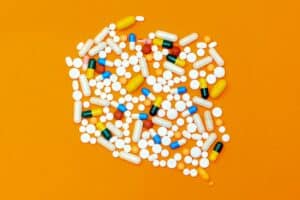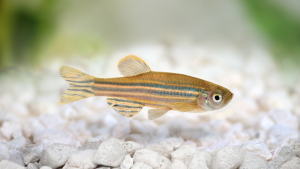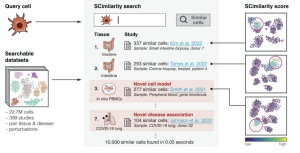GLP-1 Drug Alternatives, Continued | Childhood Obesity News

This post is a continuation of a recent post.
A probiotic supplement may also contain golden turmeric extract (anti-inflammatory), black pepper extract (for bioavailability), sunflower lecithin, and other natural ingredients which are said to provide additional benefits. A fiber, glucomannan, helps a person to feel full, and various ingredients promote thermogenesis, or actual heat inside the body, which literally burns calories (or possibly not.)
A typical brand of natural stuff combines several ingredients and does come with the possibility of side effects which however are said to be rare. They are bloating, headache, and gut imbalance (dysbiosis), a particularly disconcerting outcome because one never knows whether to expect constipation or diarrhea, and they are pretty much the opposite phenomena.
But even if that internal chaos occurs, it is said to improve within weeks. One is tempted to ask, how many weeks? Four weeks? That would be a month, or one-12th of a year, at least. Many people prefer to remain overweight and enjoy life, instead.
A USNews.com article names seven high-satiety foods (high in fiber, healthy fats, and protein) and assures that a diet rich in them will aid in reaching weight loss goals. They are oats, barley, legumes, eggs, Greek yogurt, avocado, and fish. It goes on to say,
Foods high in protein, fiber and healthy fats can trigger the release of GLP-1 hormones and other satiety-enhancing effects… Eating more of these foods is less expensive than weight loss medications and have none of the unwanted side effects.
Even better, a piece by Joe Cannon, who for three decades has advised people about how to stoke up their own innards to manufacture their own GLP-1, names a total of 31 such foods. There are major groups, like fermented foods (yogurt, kefir and kimchi) and high-fiber foods (beans, oats, and barley), as well as resistant starch, whey protein, phytonutrients, Spinach Thylakoid Extracts, certain nuts and seeds, extra virgin olive oil, and other esoteric ingredients.
Along with the substances already mentioned, he recommends Resveratrol, glutamine, Valine, glycine, arginine, tryptophan, and more. Cannon also also warns of what to stay away from, and adds,
While going the natural route may not produce as impressive weight loss as drugs like Ozempic (semaglutide), it’s also true that it will cost less, and the risk of side effects may be lower, too.
…[T]he fact that natural therapies work is valuable knowledge to those who cannot afford these medications and who are averse to taking drugs for weight loss purposes.
A WebMD.com article by Jessica Migala adds some important information, namely that GLP-1 production is aided by exercise because it also facilitates the production of insulin, giving the body’s cells energy — and although research is not definitive, this appears to also be true for patients with type 2 diabetes. “Exactly what’s going on needs further study,” the report says.
Migala warns that natural supplements cannot achieve the same results as the drugs will. Although berberine might do something, the trials that opinion is based on have all used different doses and durations, so the overall picture is not clear. Also, it can cause the same nausea, bloating, and constipation that GLP-1 drugs are known for. She writes,
[I]t’s clear what the prescription medications are supposed to do, and at specific doses. But supplements may rely on preliminary or incomplete data, so it’s less clear what effect they will have on you.
The author warns patients to keep their physicians aware of anything they are taking, because some herbs and other remedies might interfere with or accentuate the effects of some medications. If the supplement route is chosen, it is important to try just one at a time, in order to be able to get clear answers about exactly what is working, and where the cause of any side effects can be found.
Your responses and feedback are welcome!
Source: “Provitalize Side Effects: What are the Side Effects of Provitalize Probiotics?,” TheBBCoo.com, undated
Source: “7 Foods that Mimic the Effects of Ozempic and Other GLP-1 Drugs,” USNews.com, 07/17/24
Source: “31 Best Foods and Supplements That Raise GLP-1 Levels,” SupplementClarity.com, 05/11/24
Source: “Can You Boost GLP-1 Naturally?,” WebMD.com, 07/26/24
Image by Michał Parzuchowski on Unsplash







